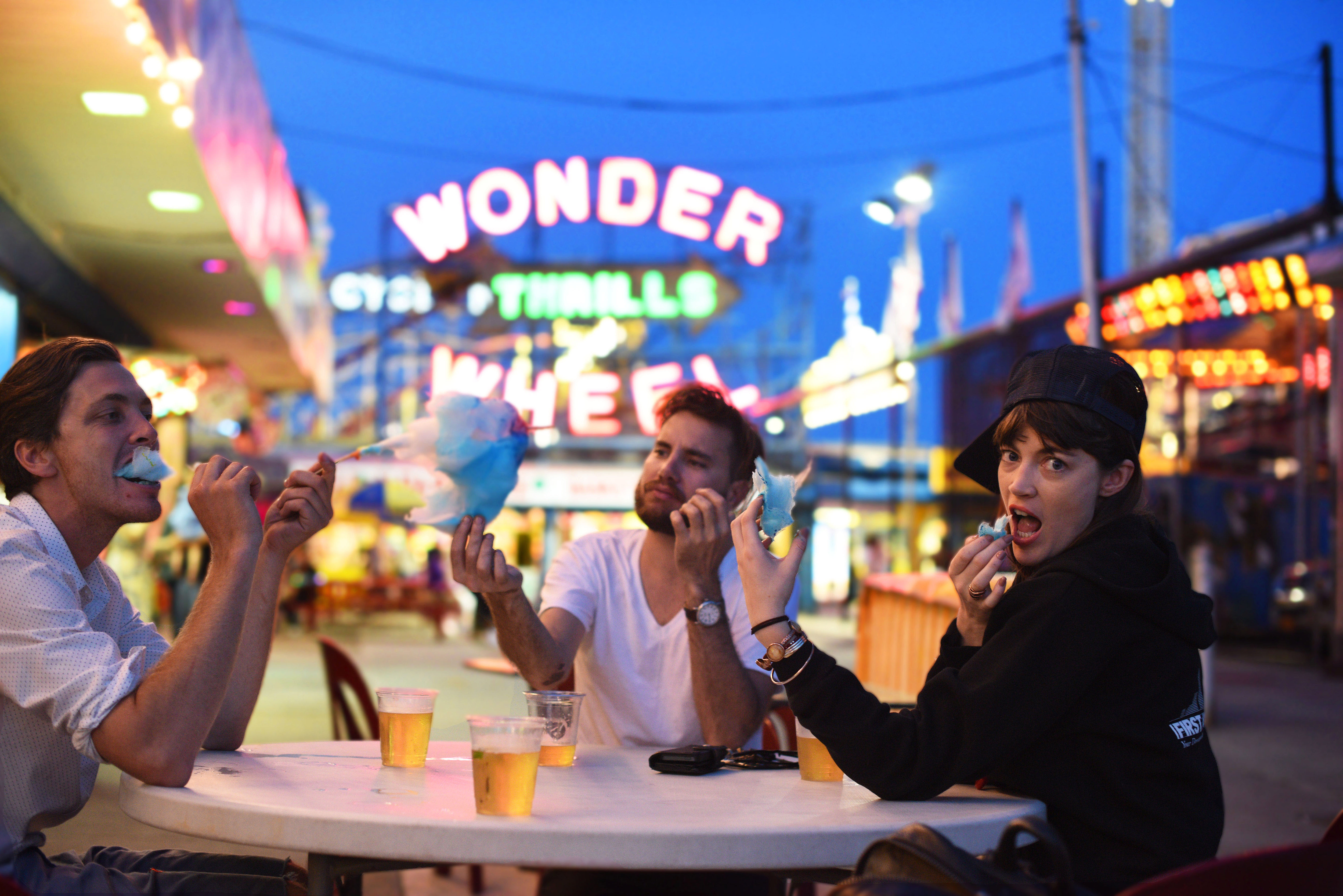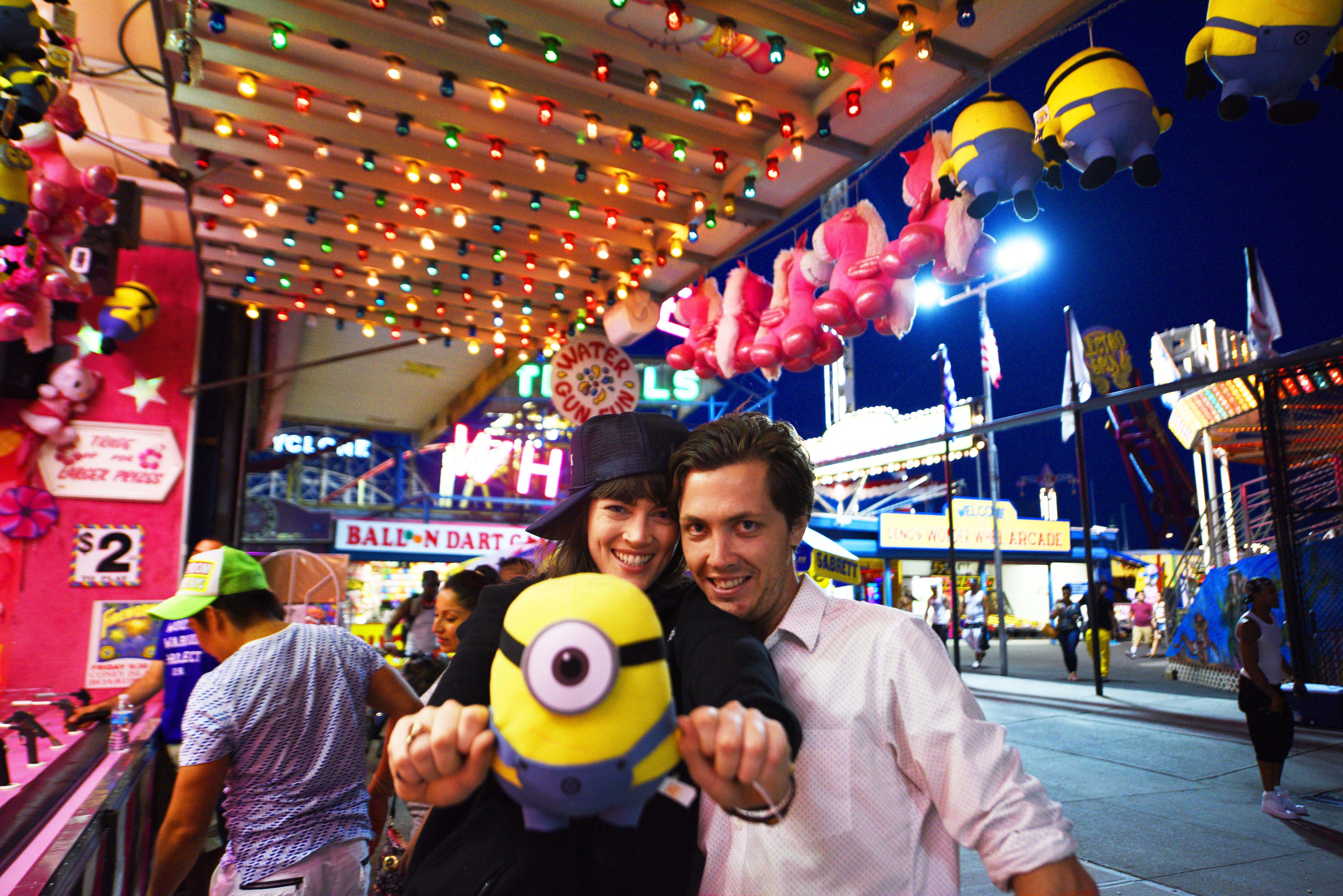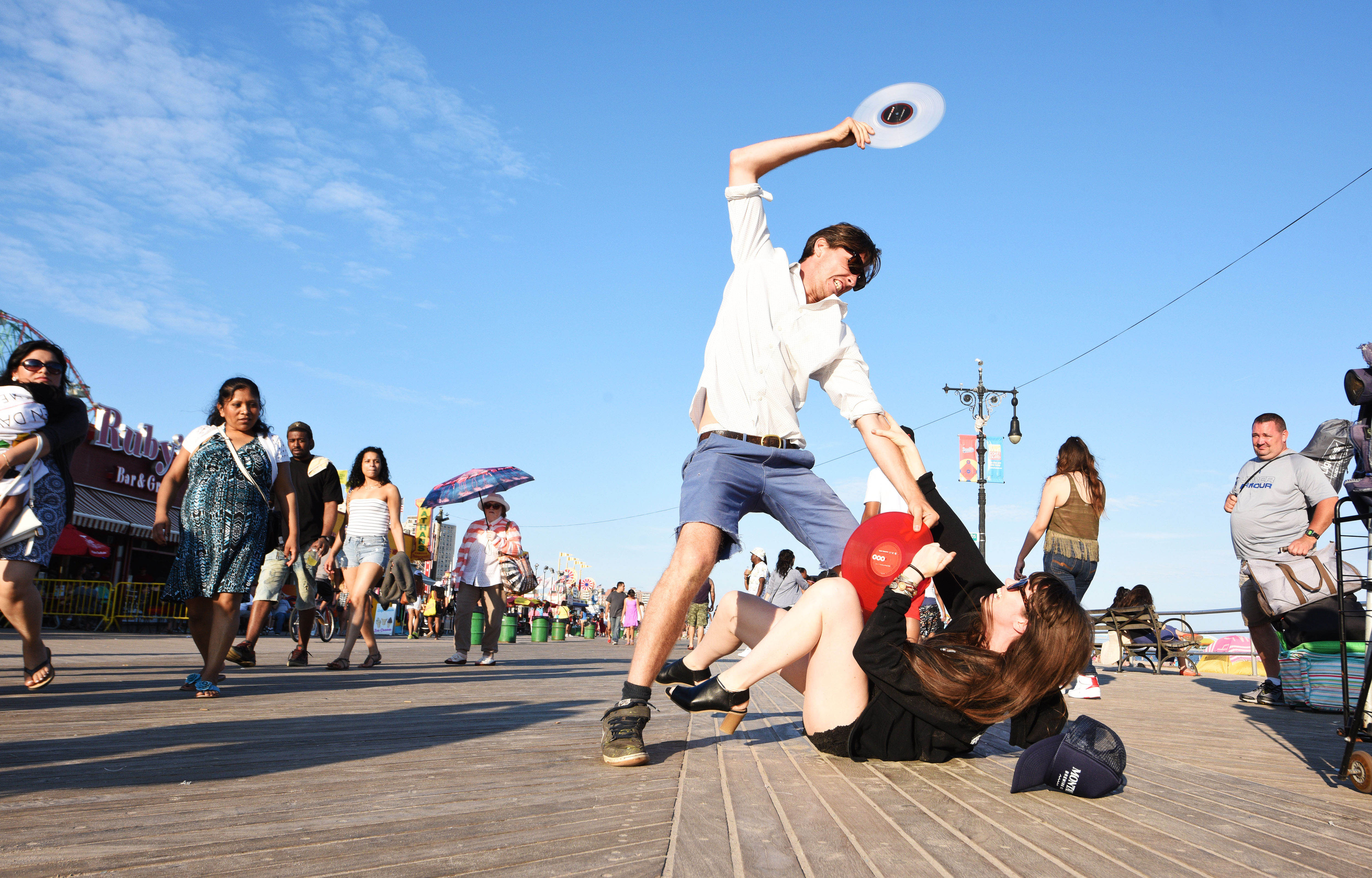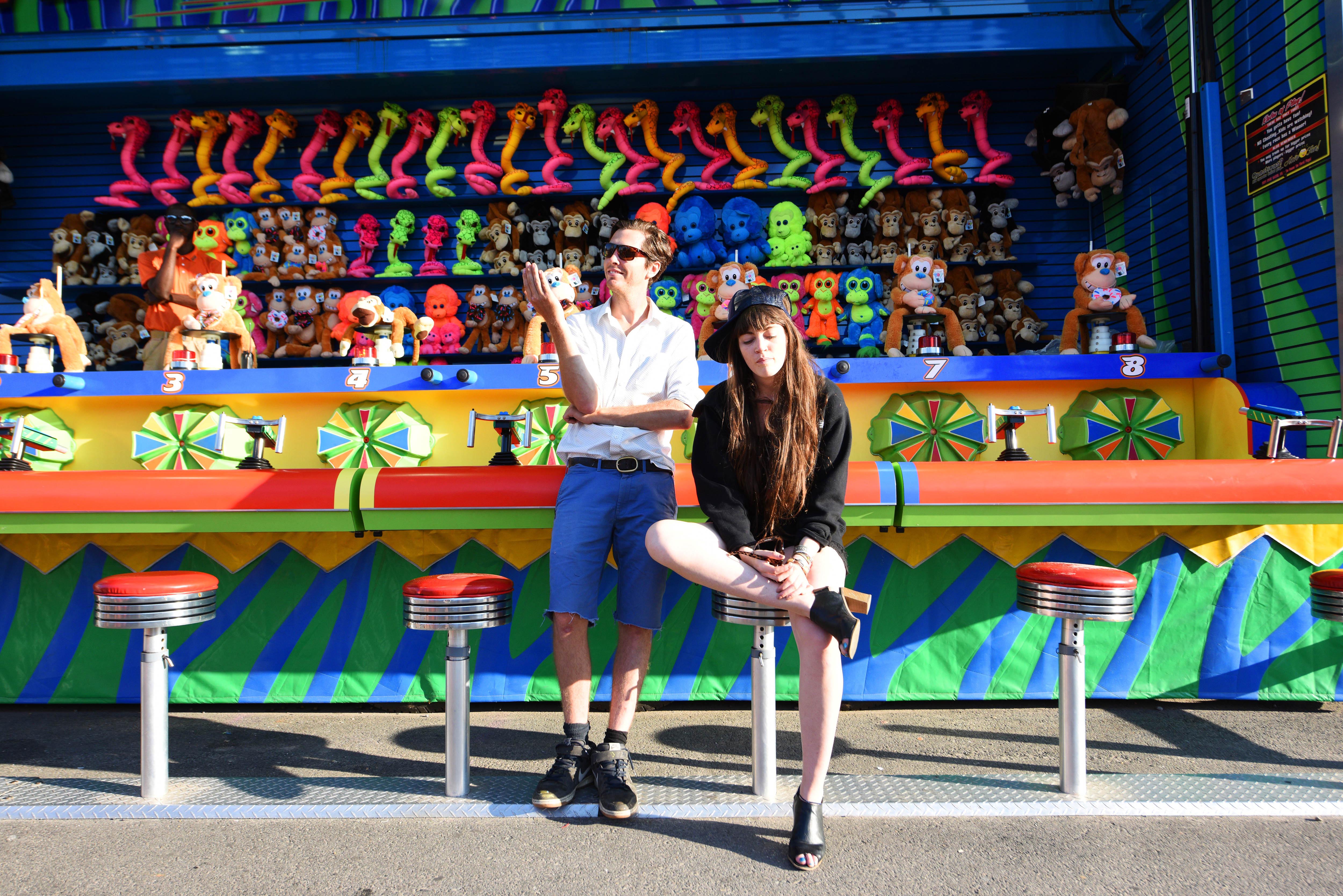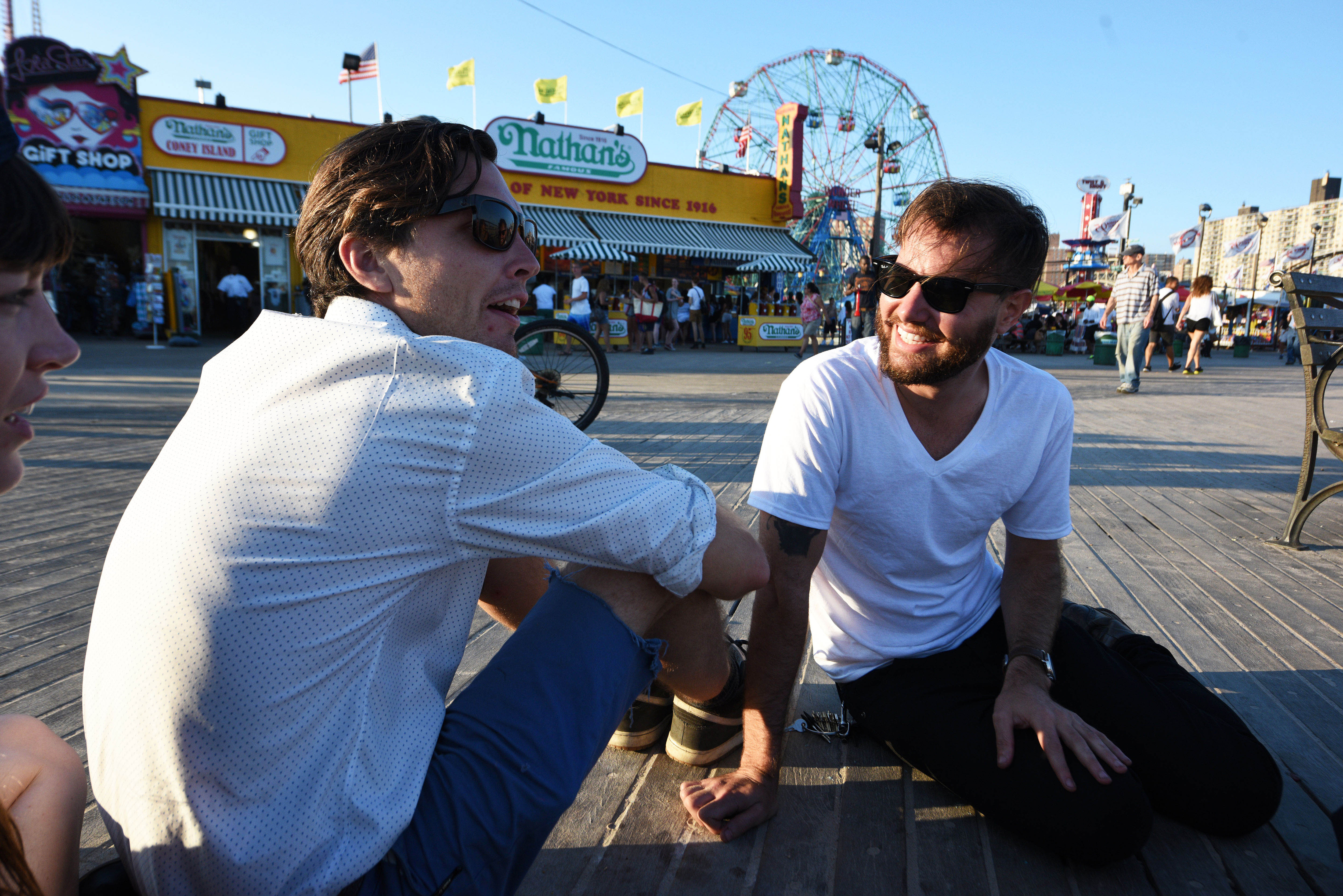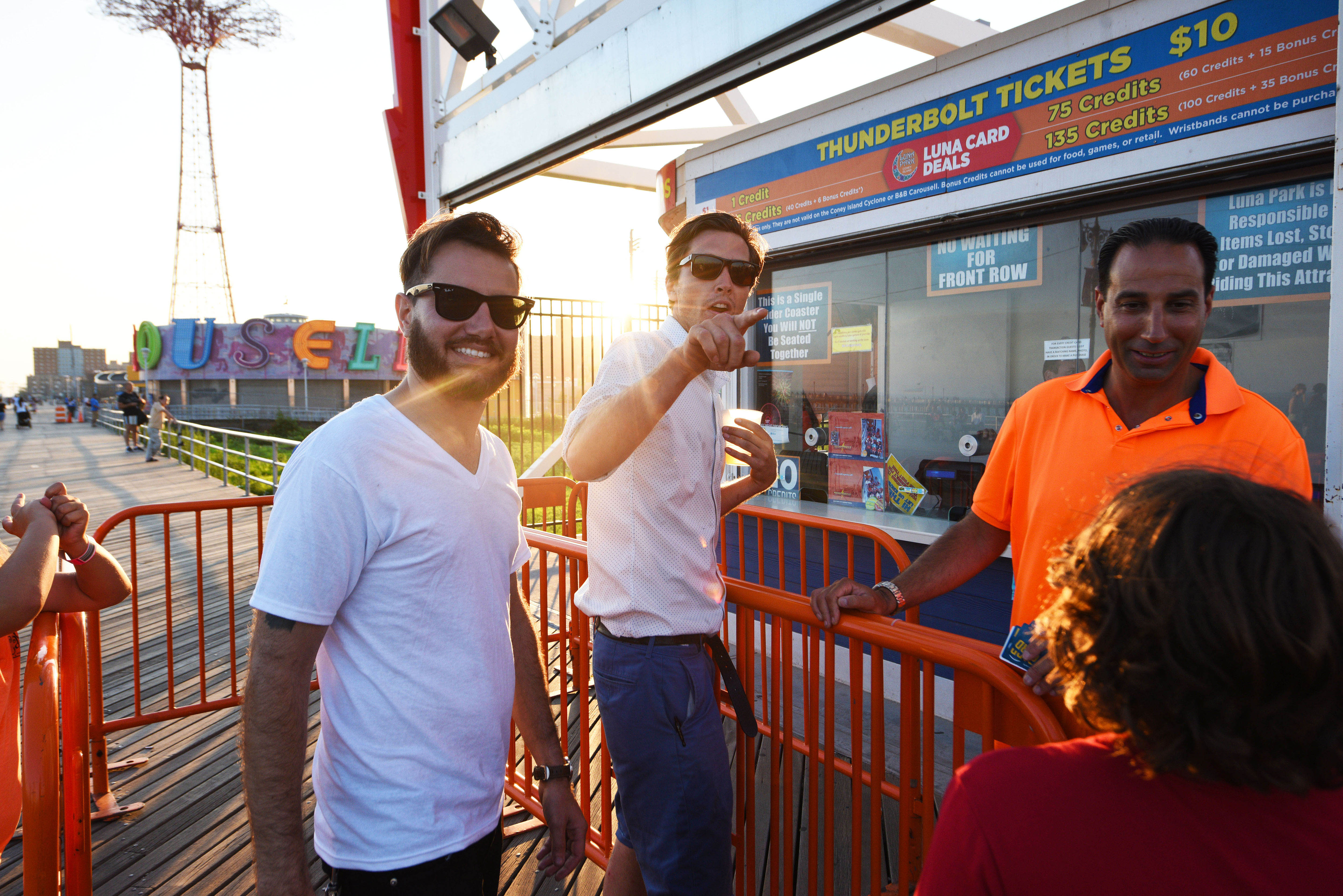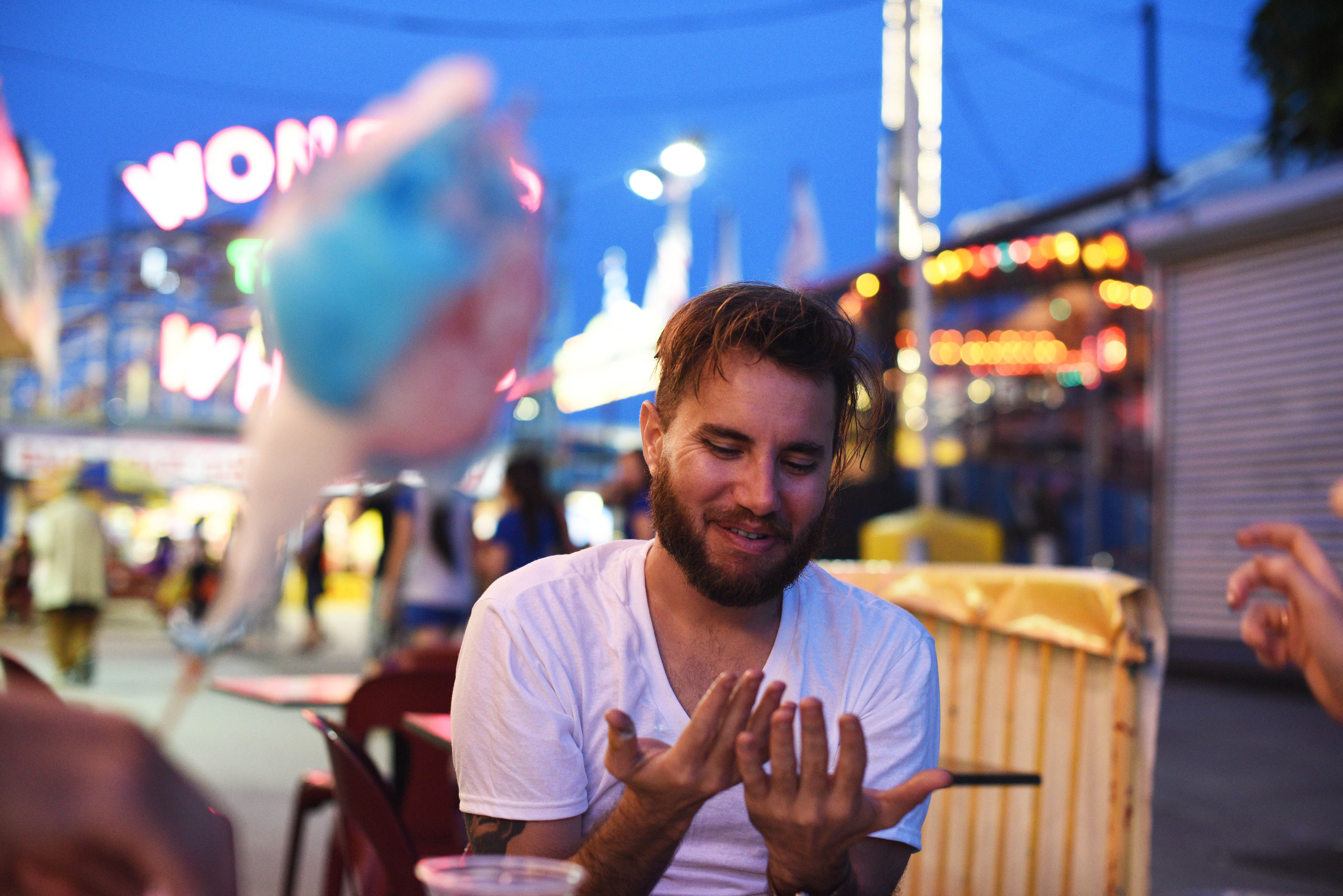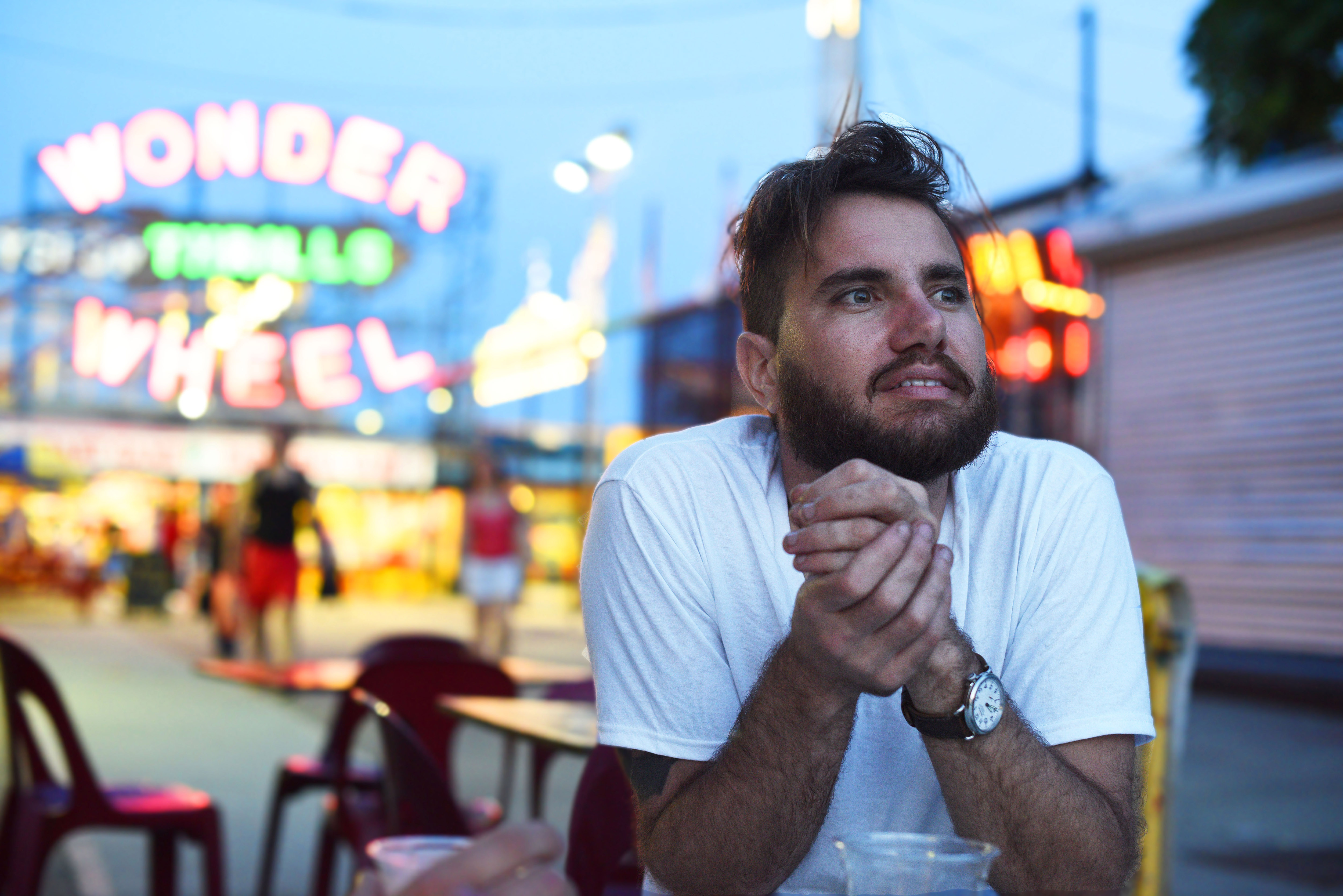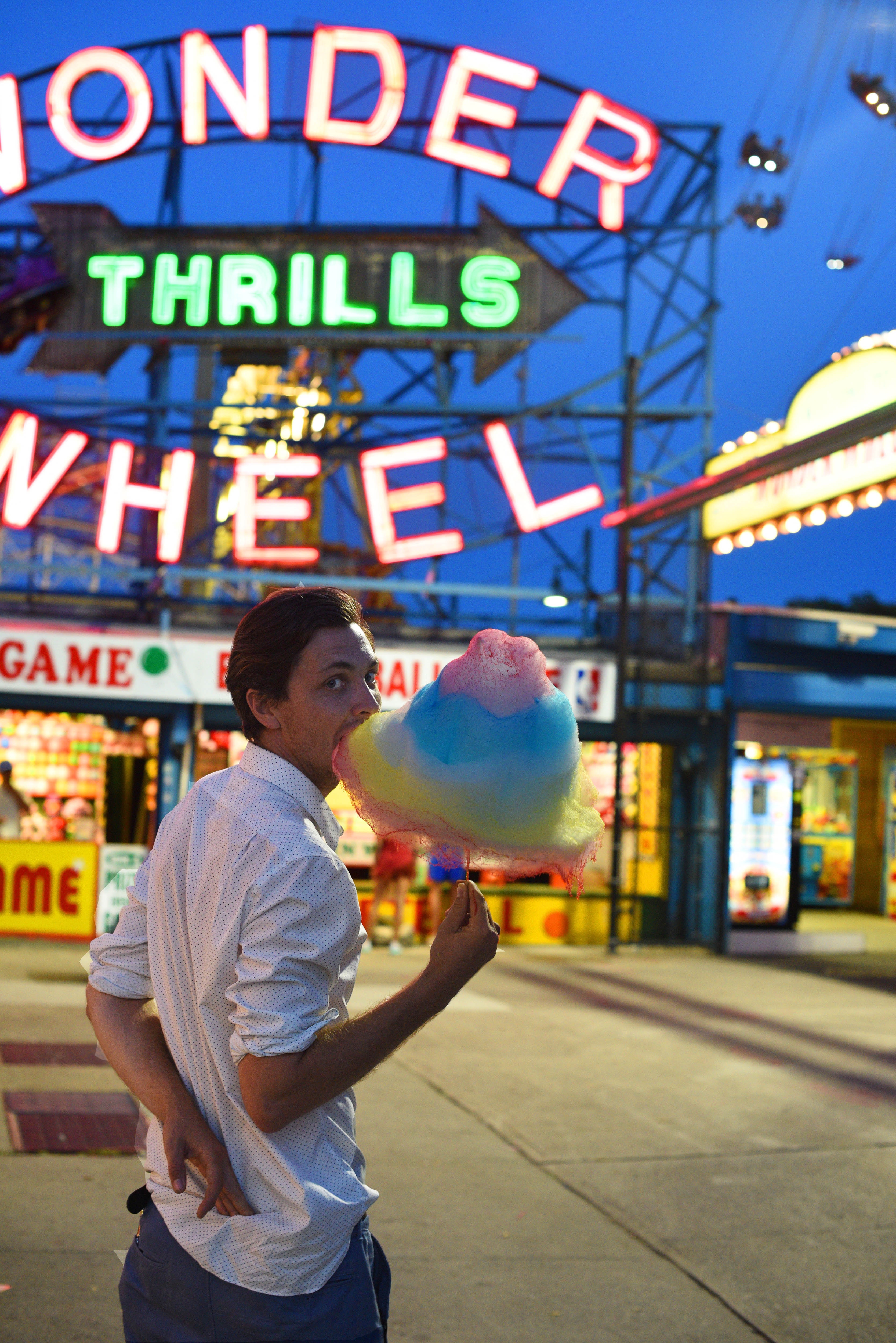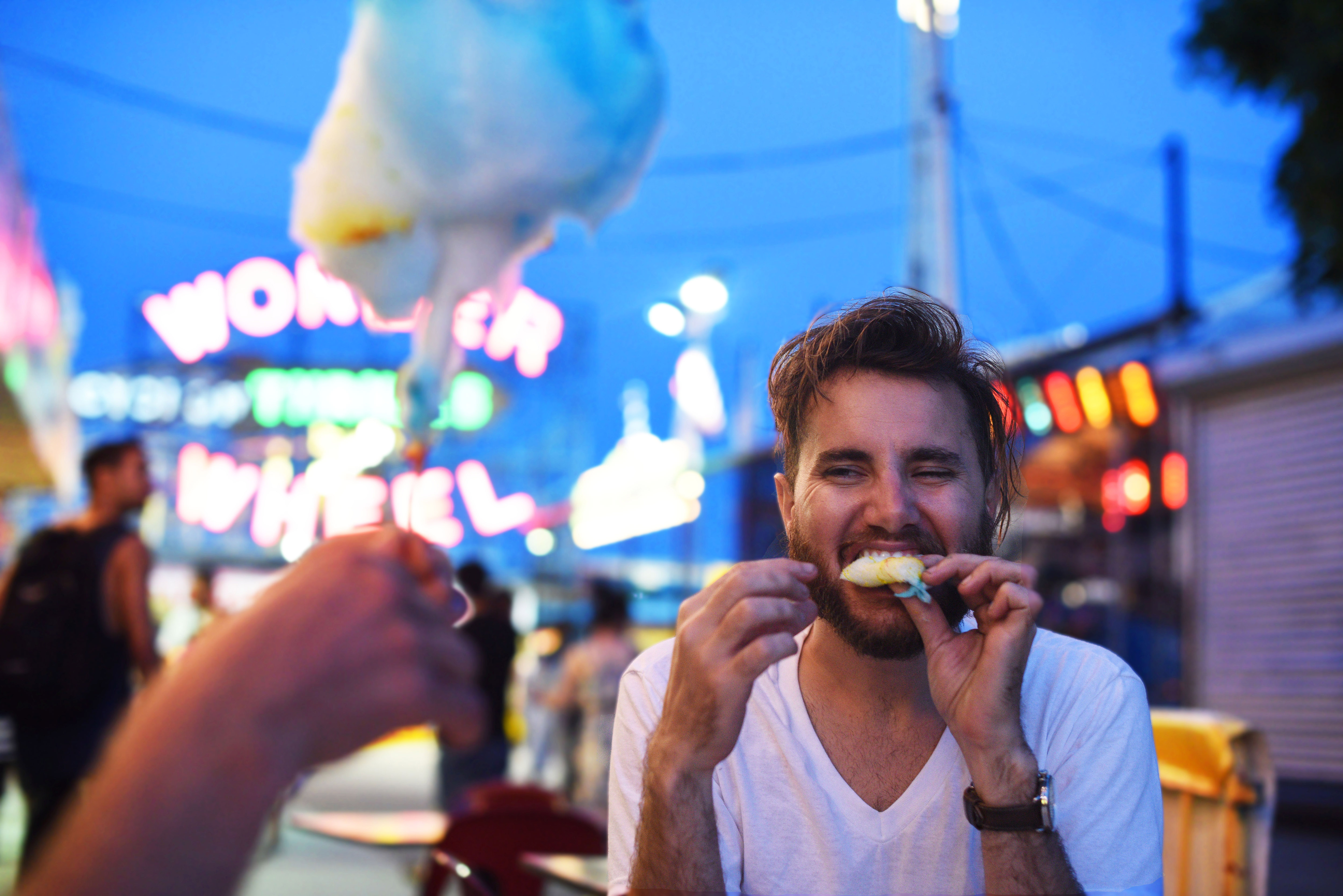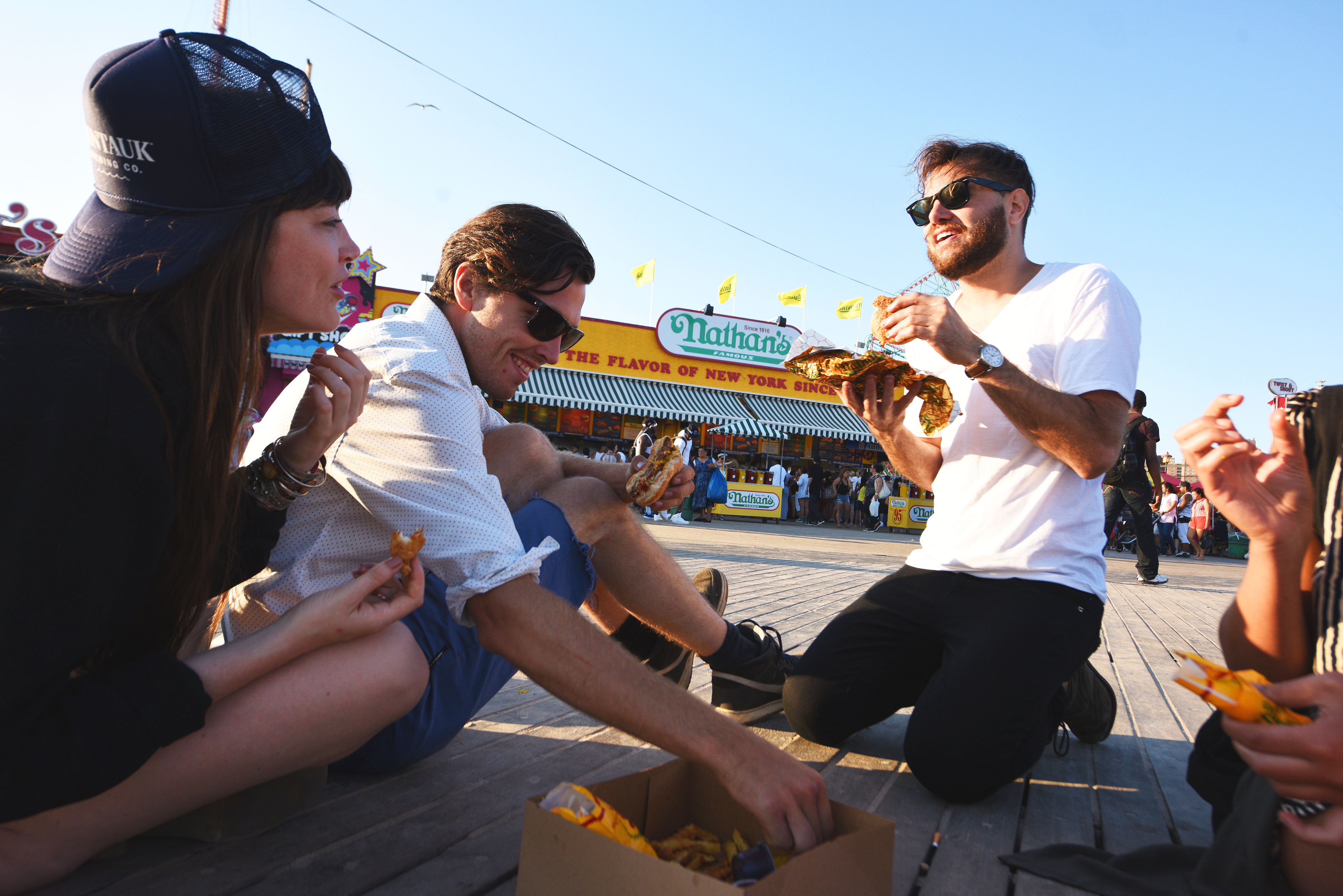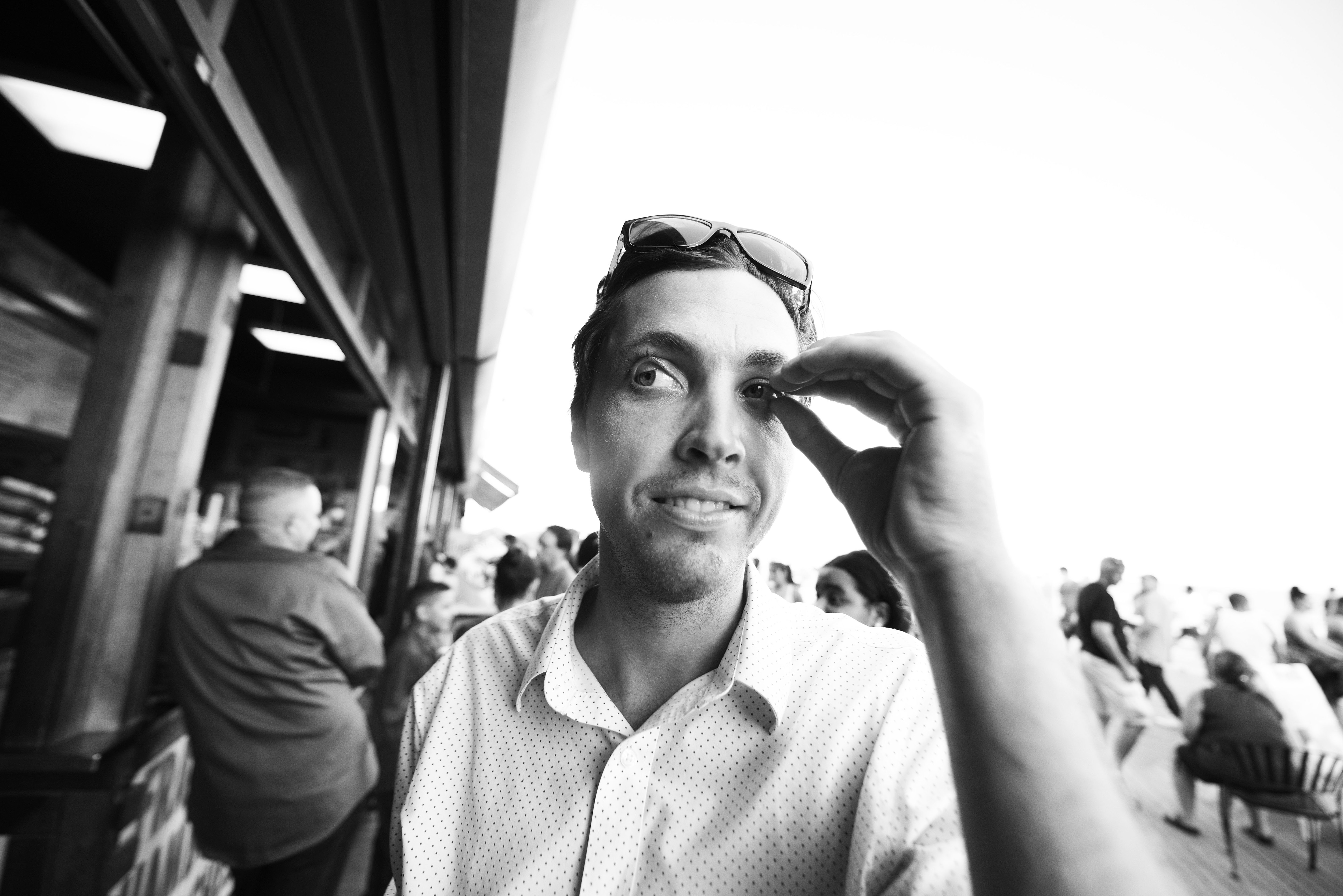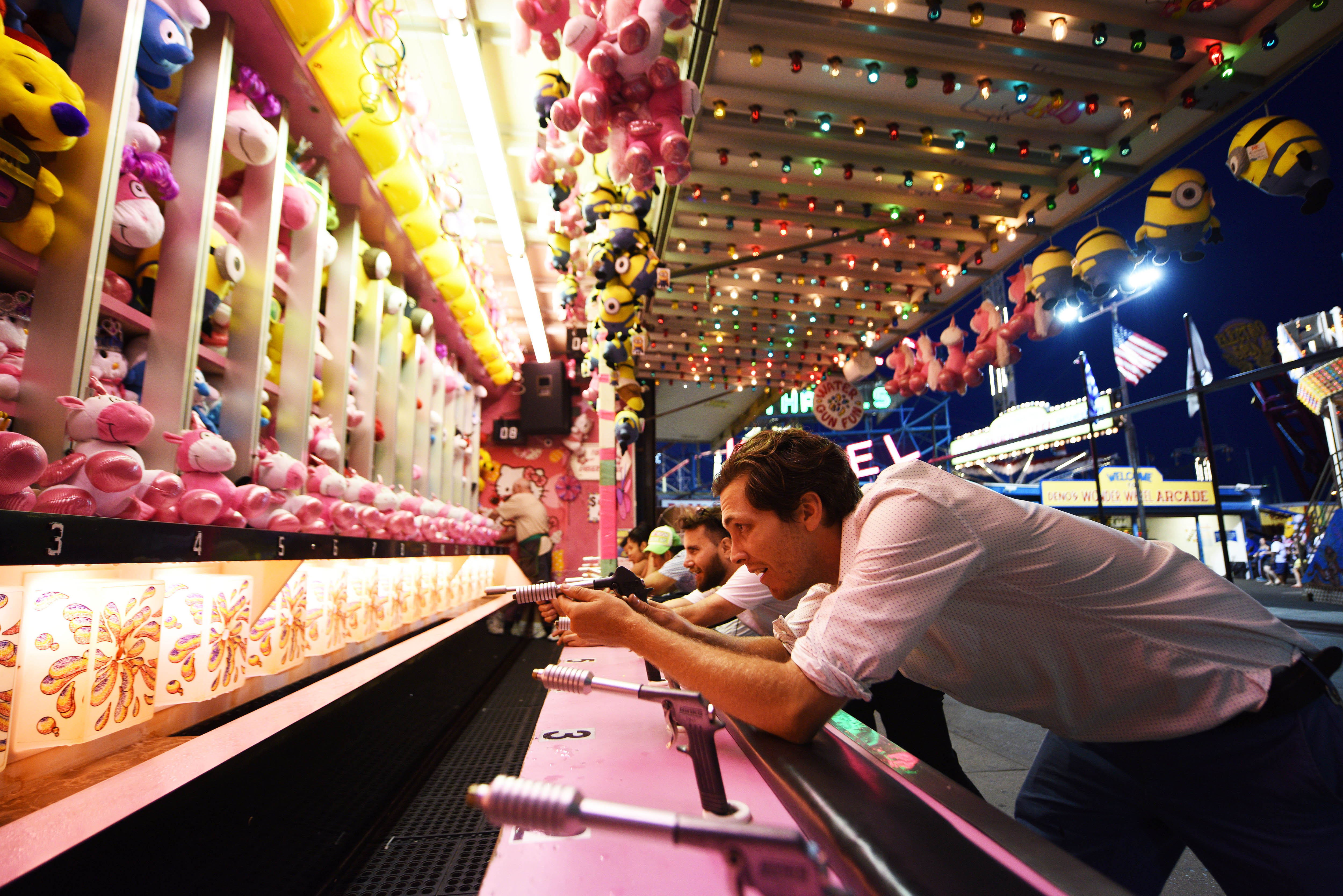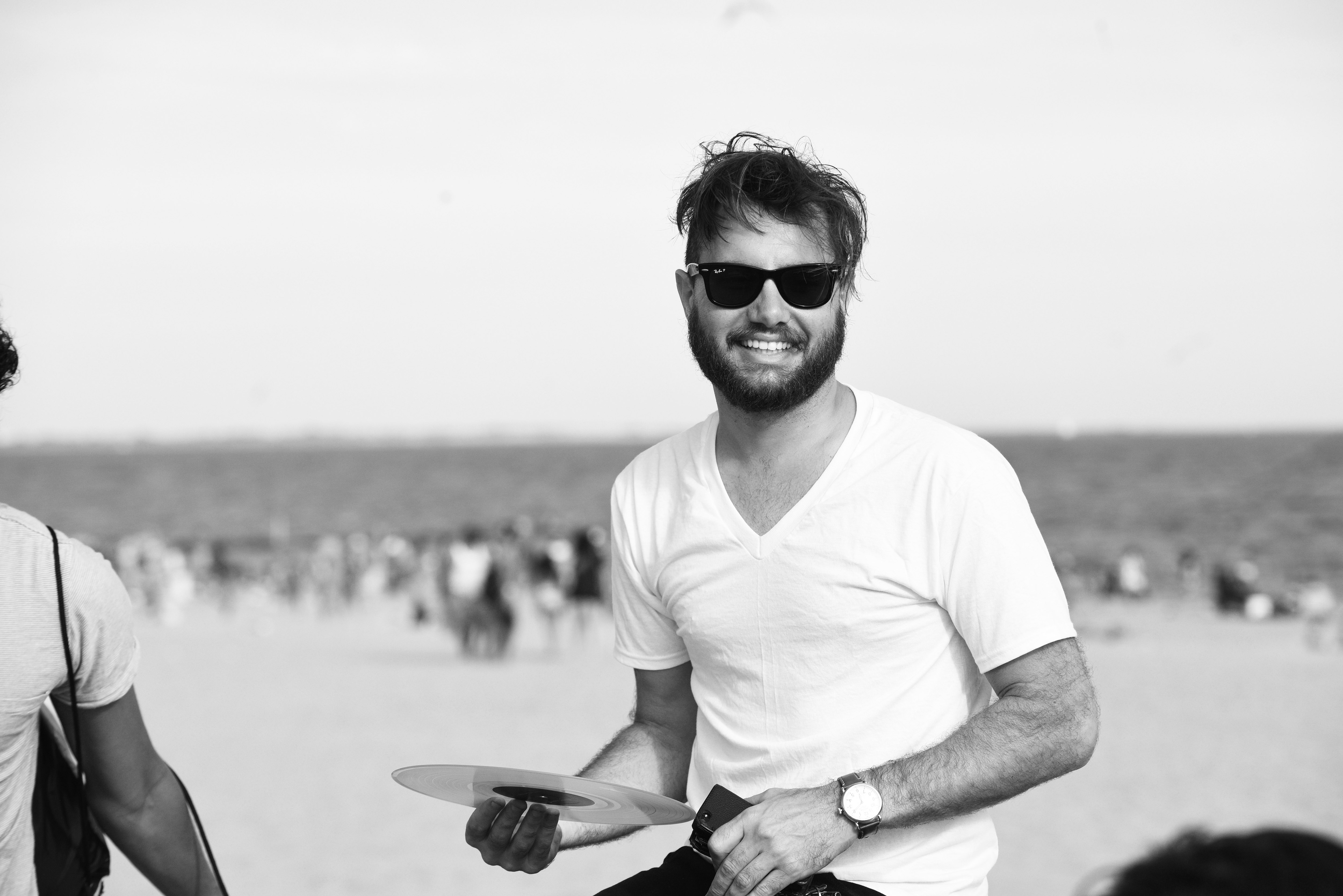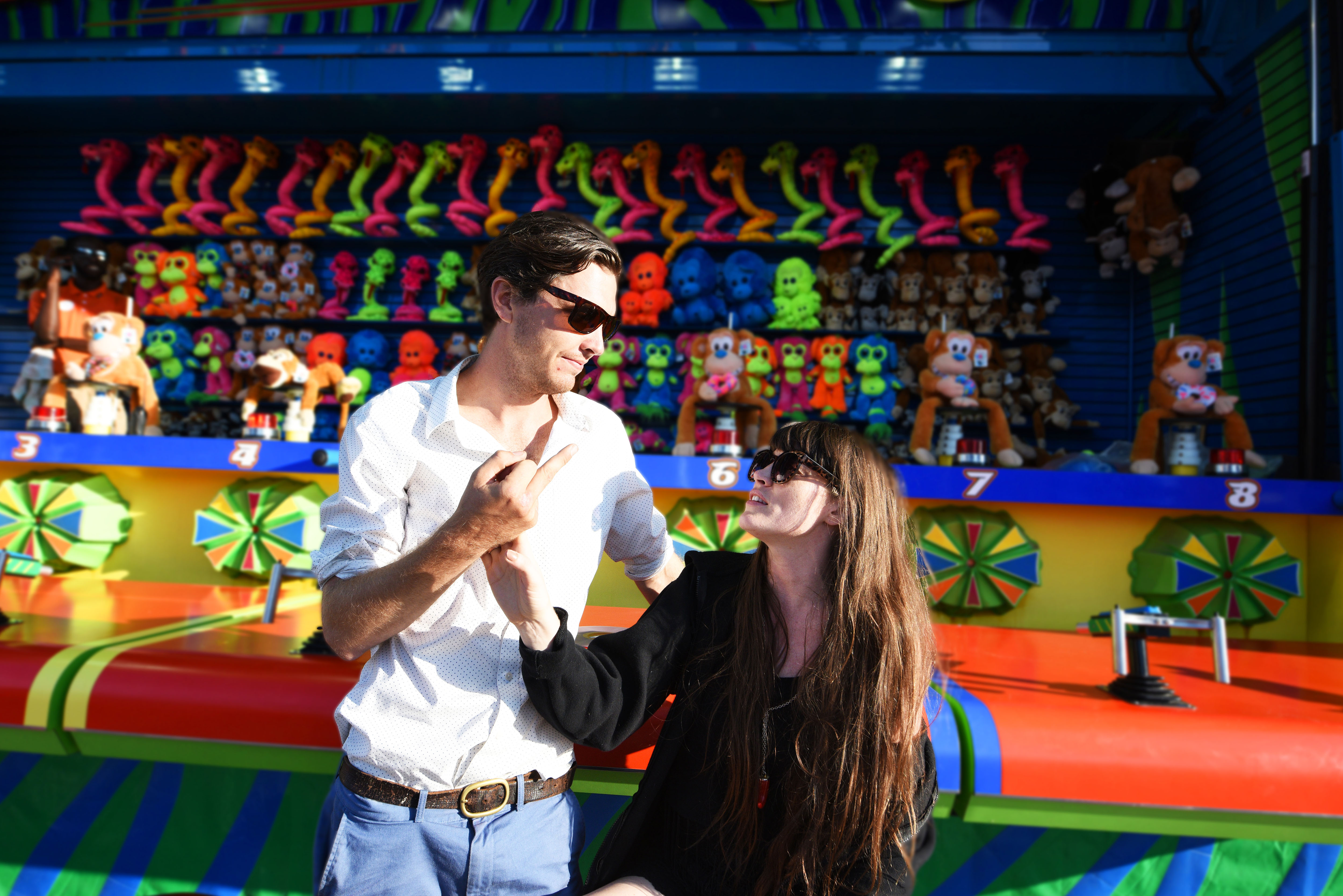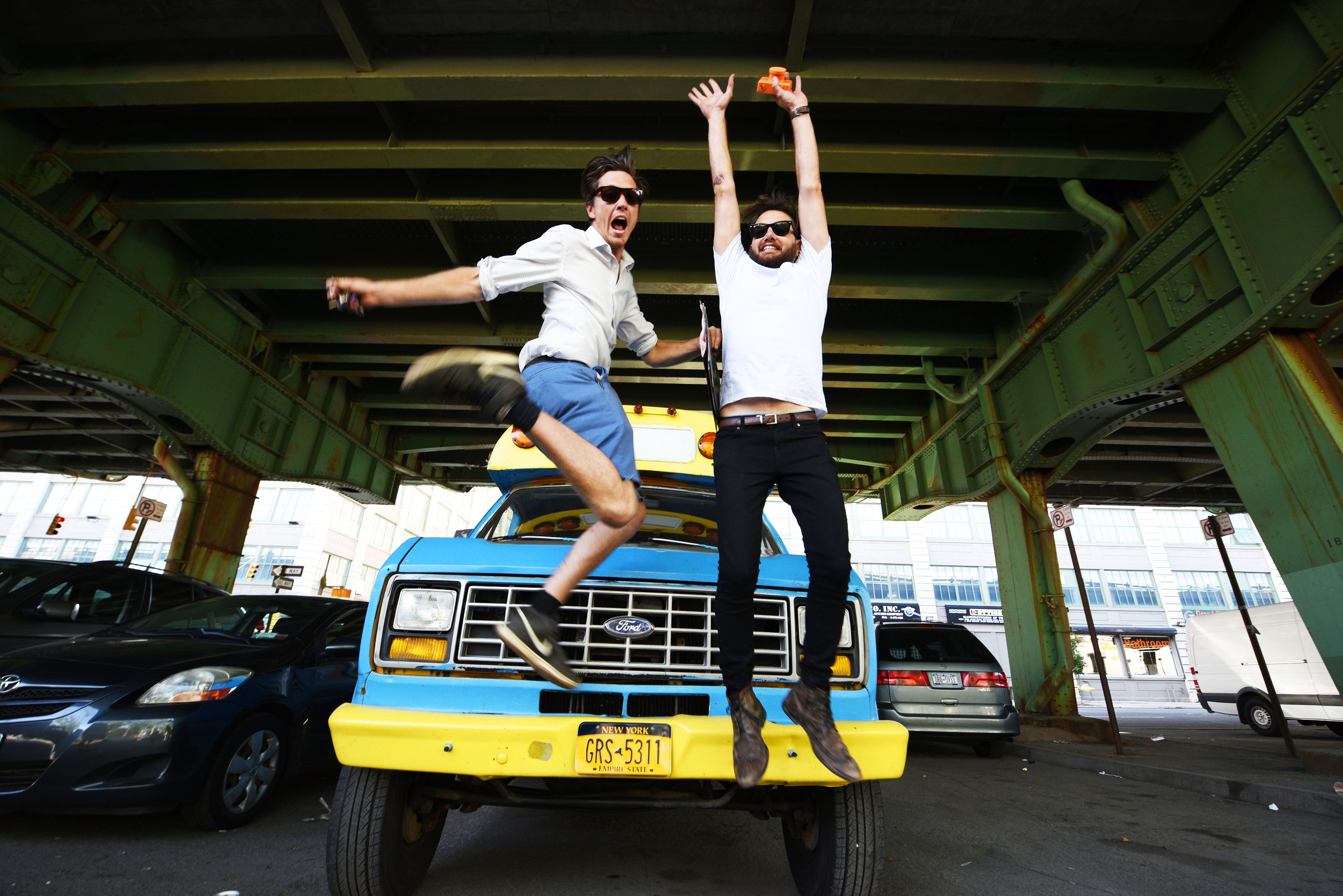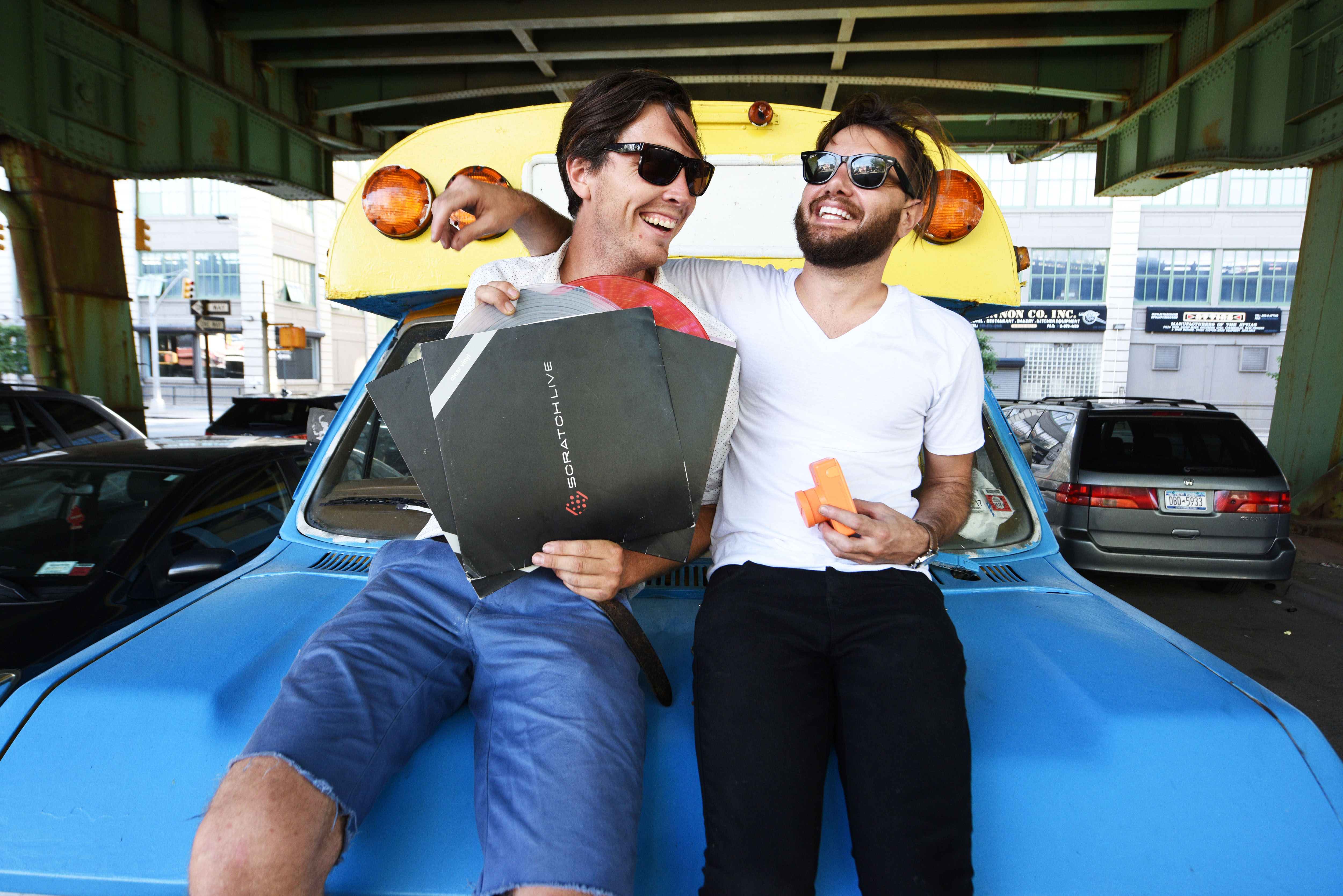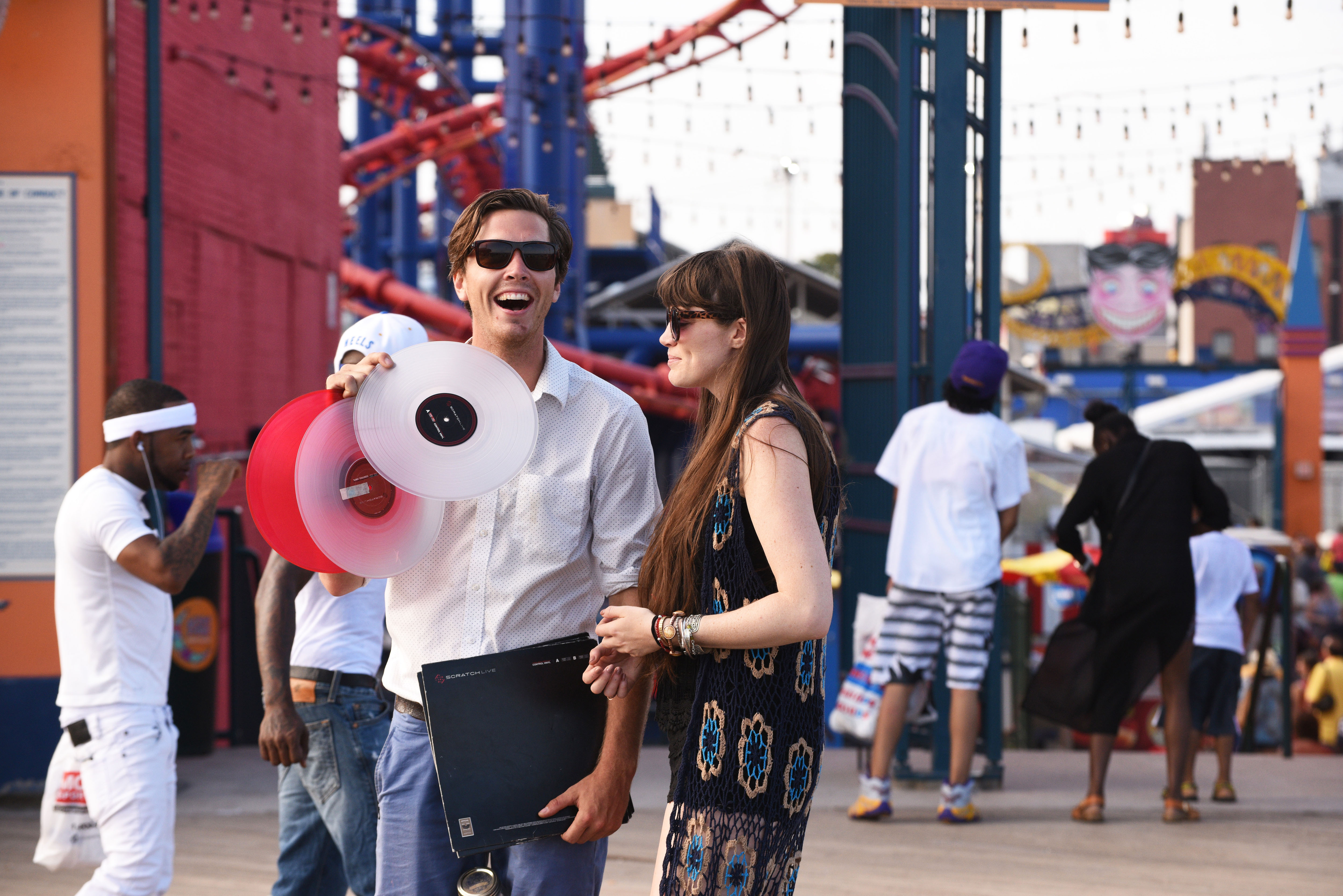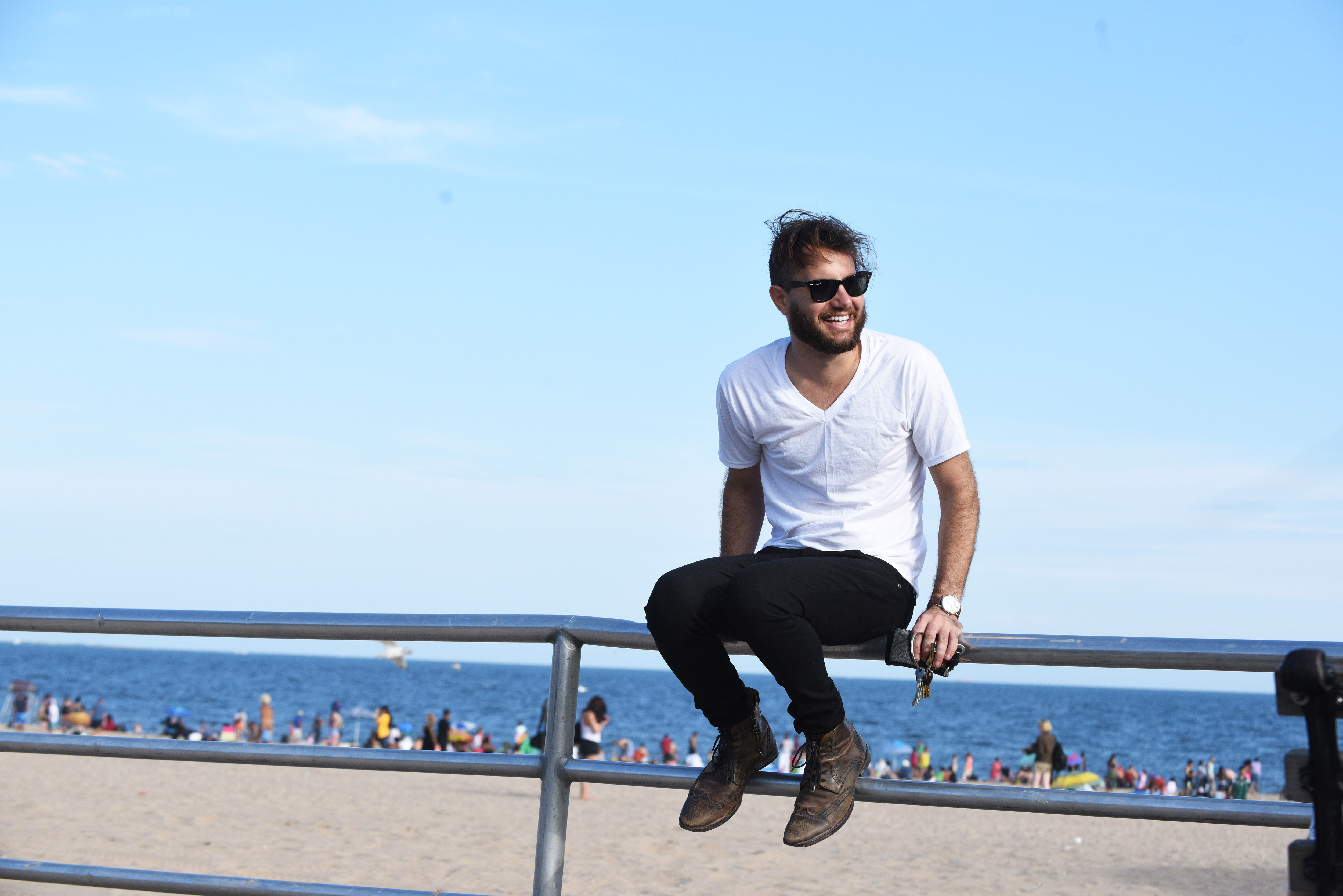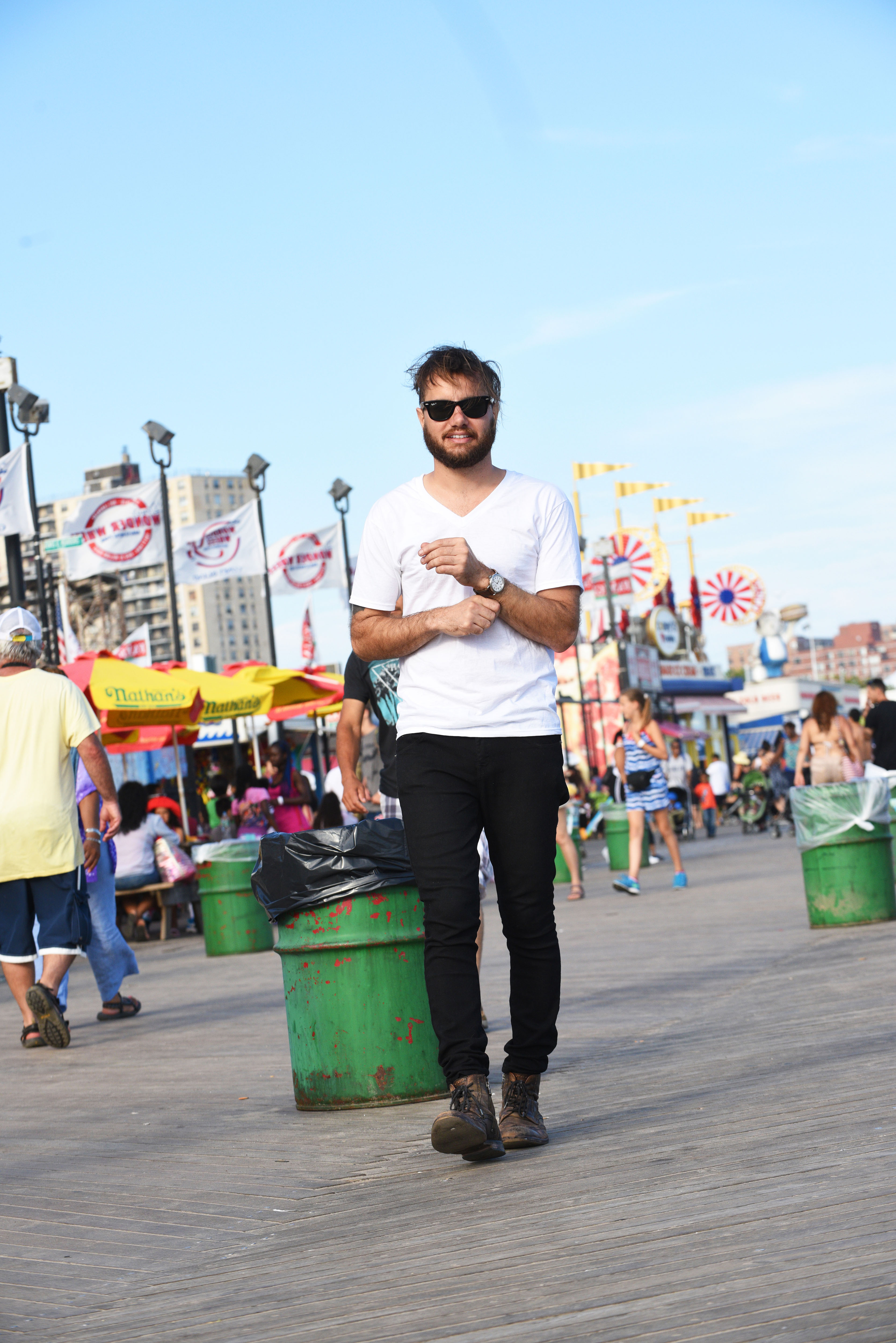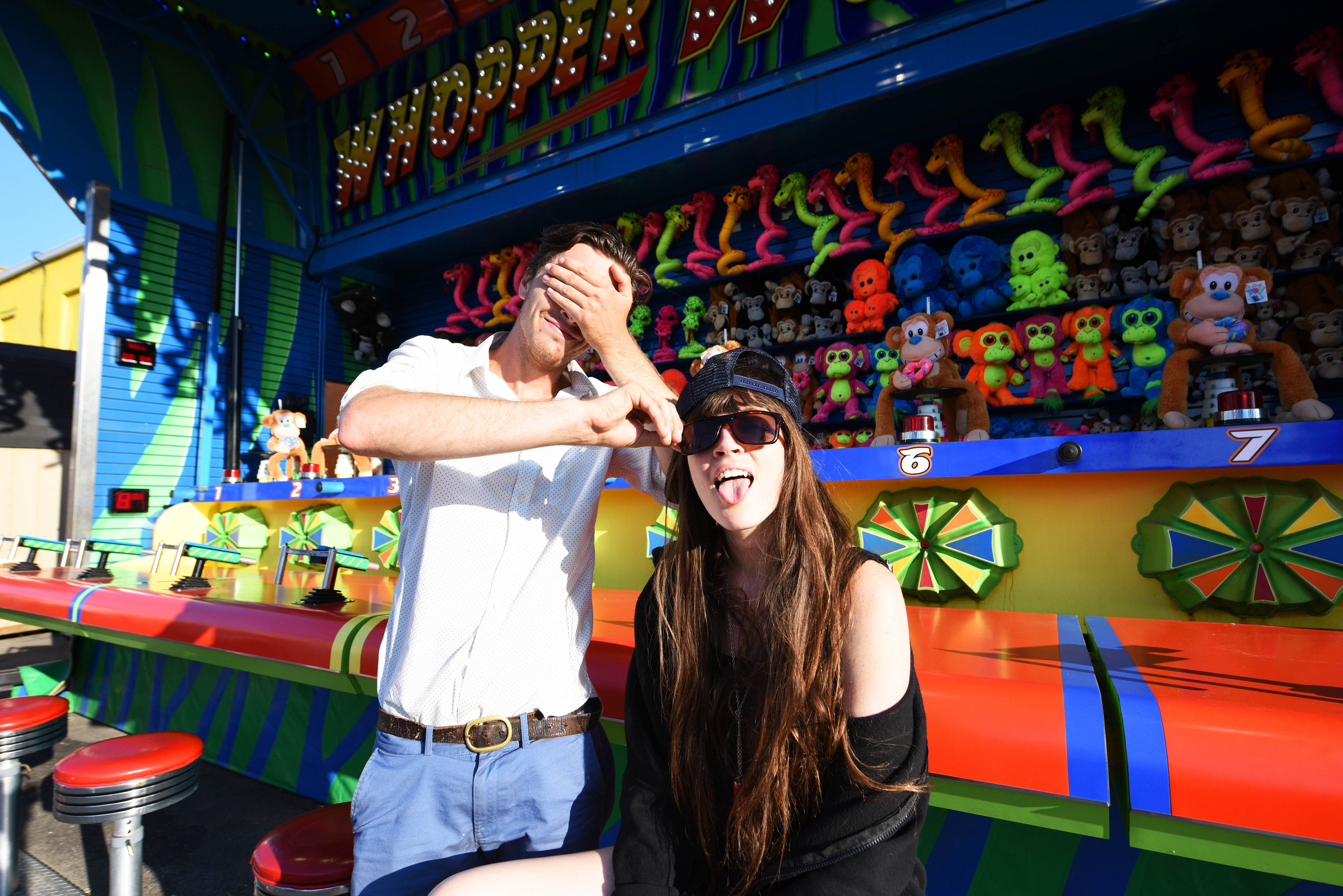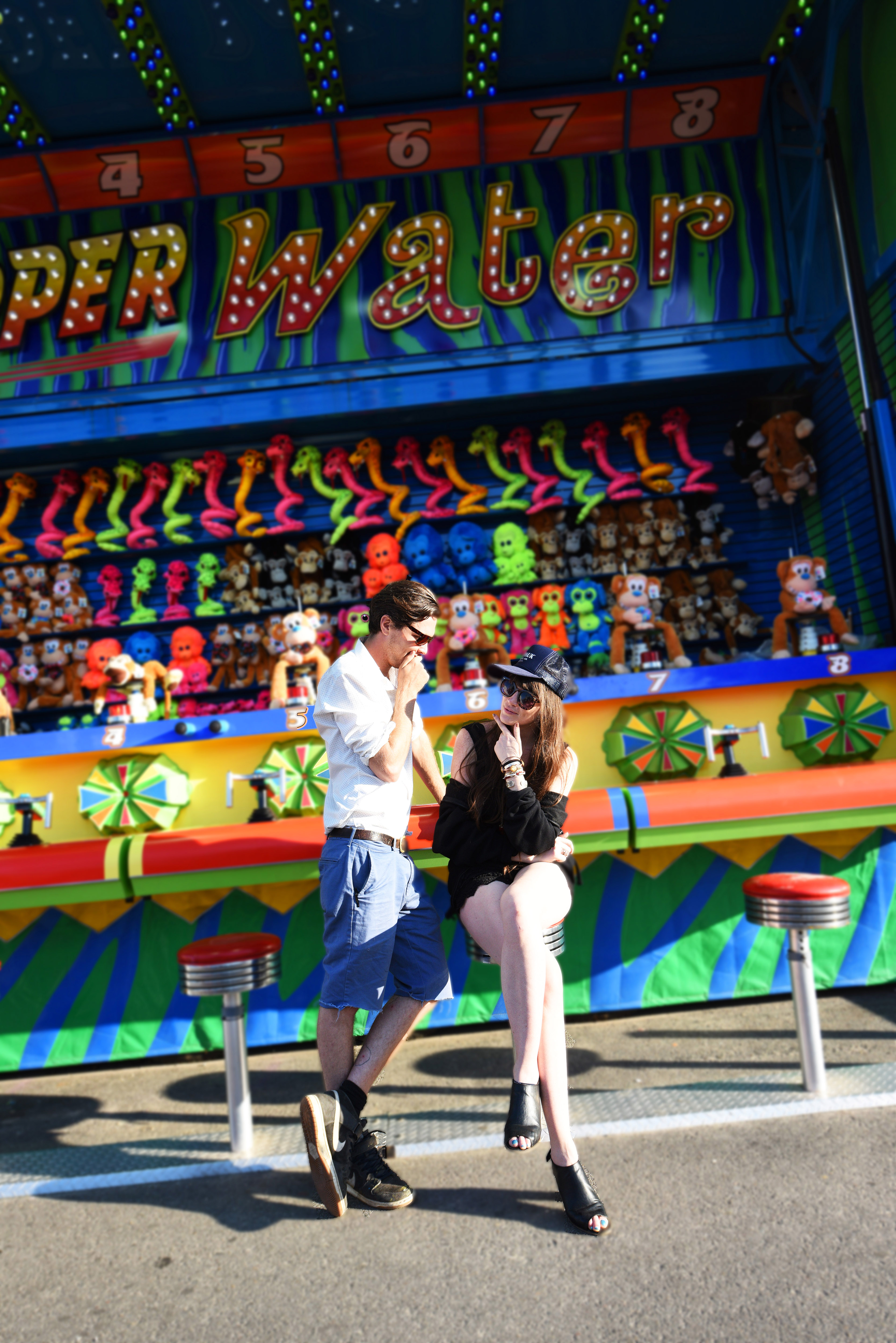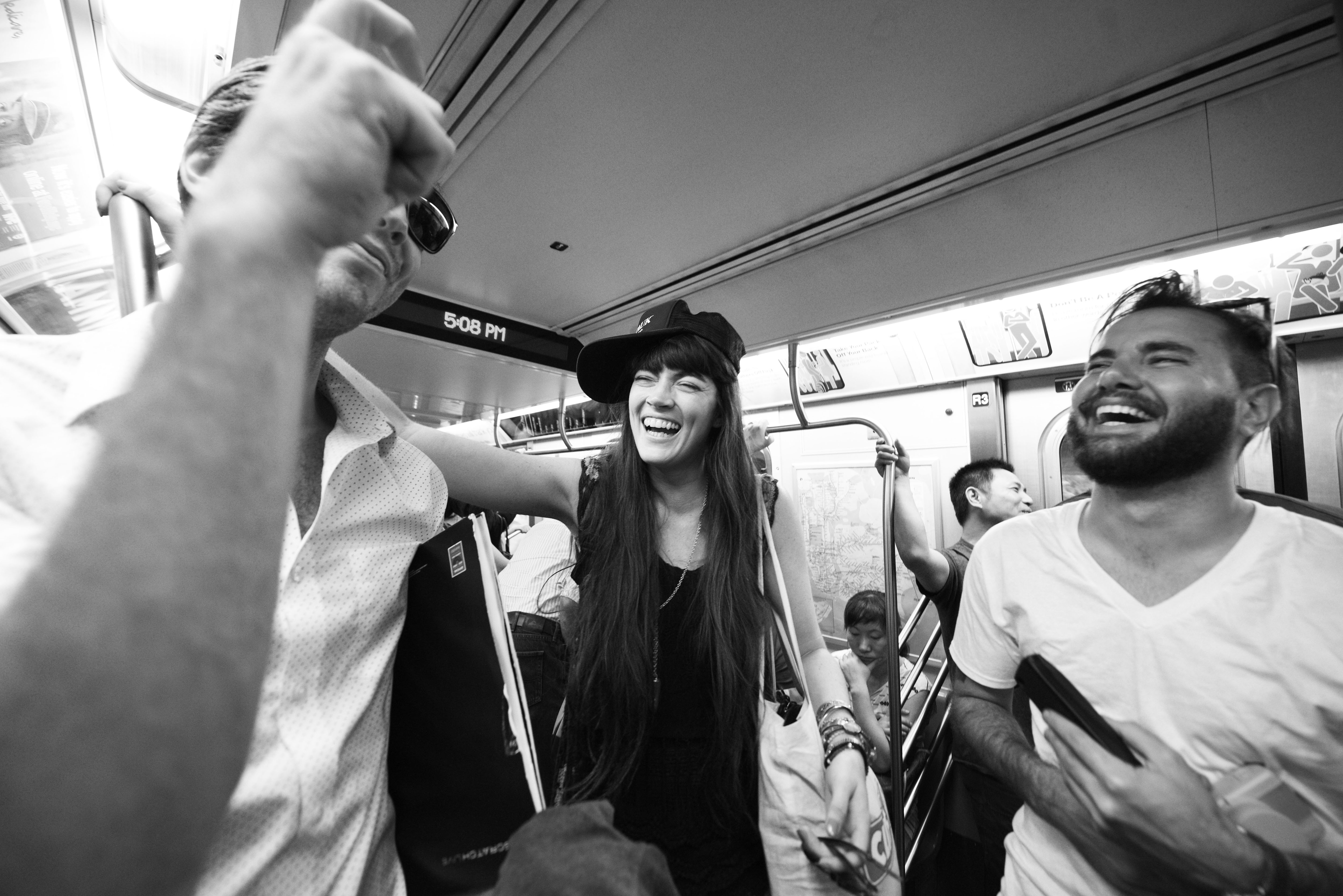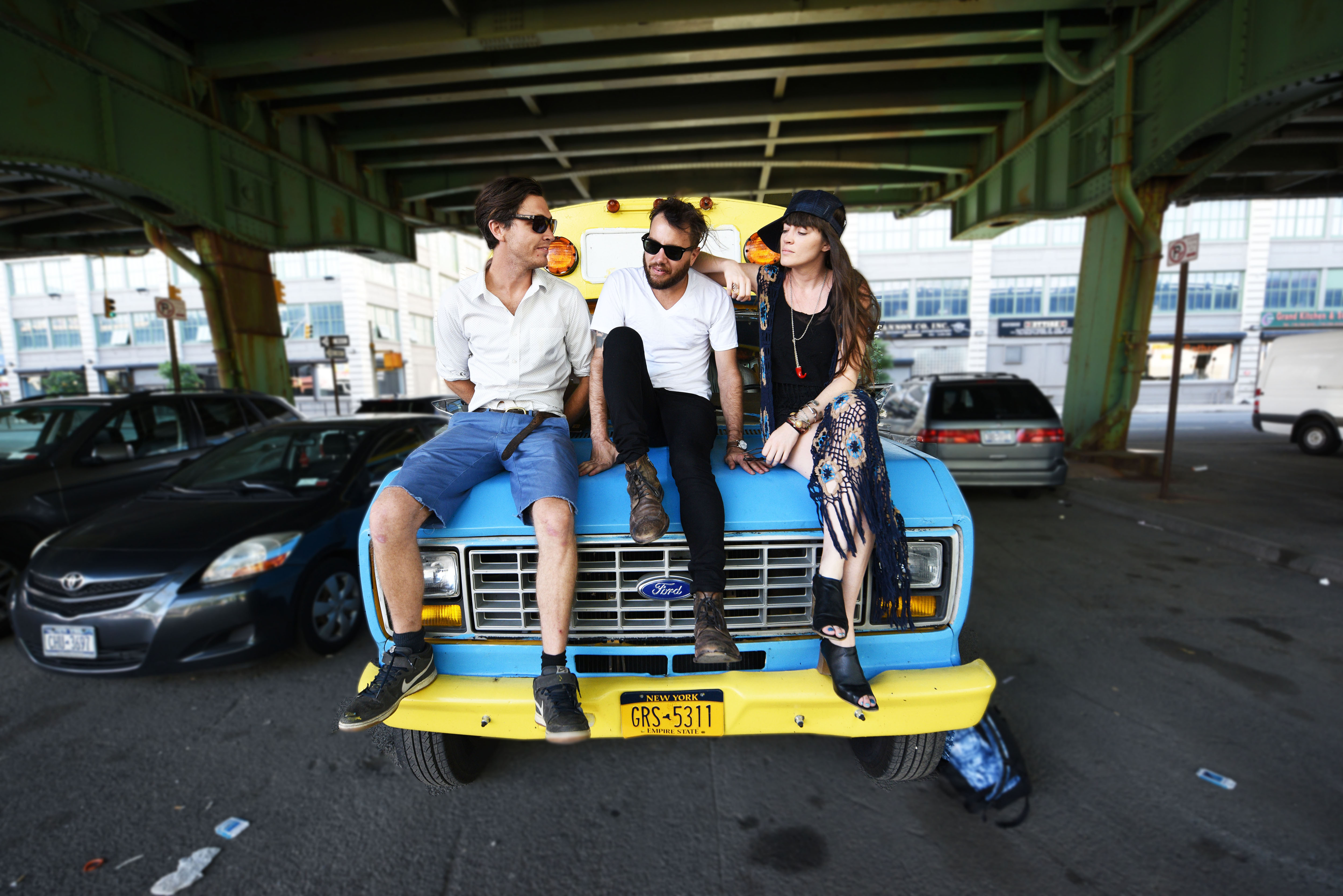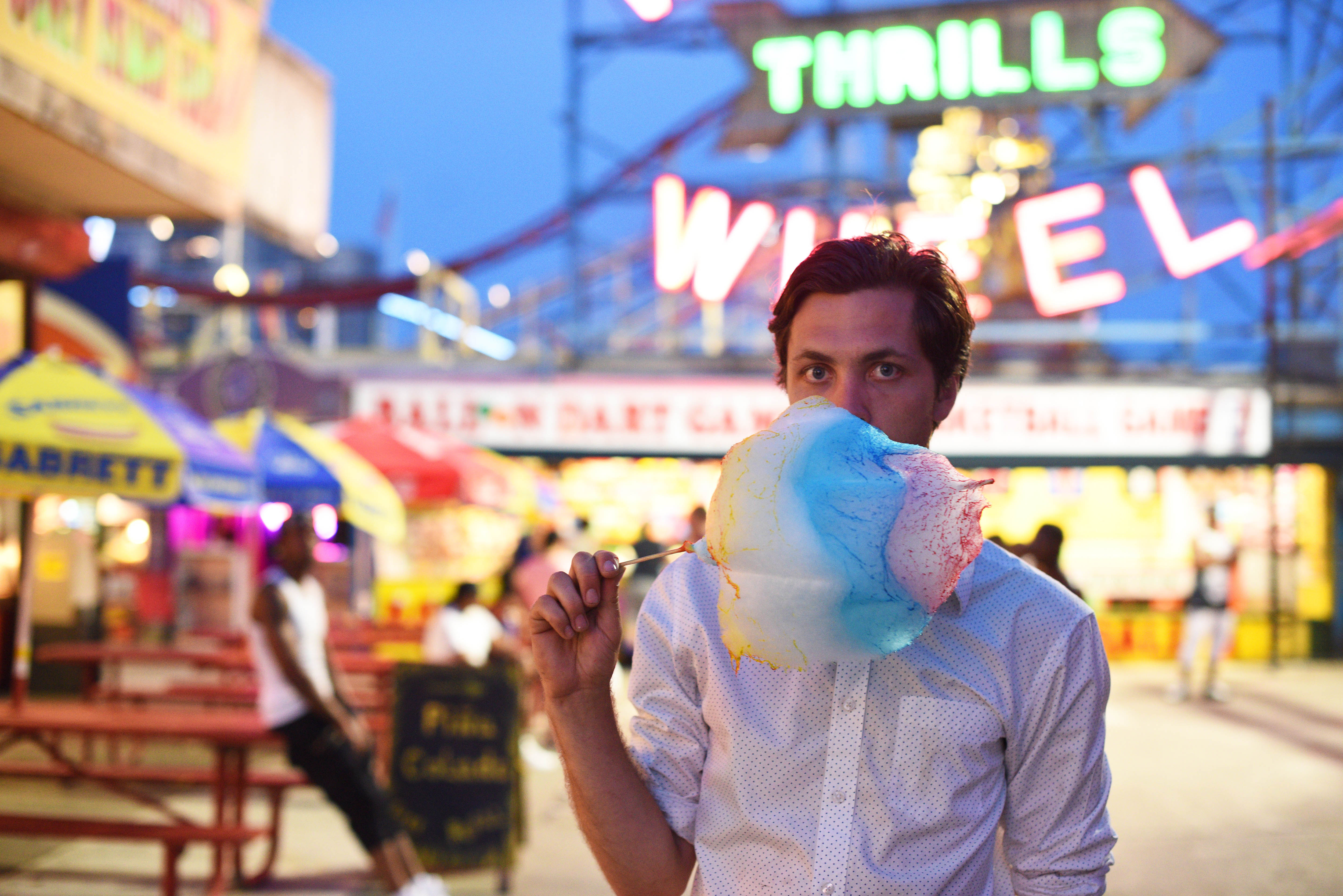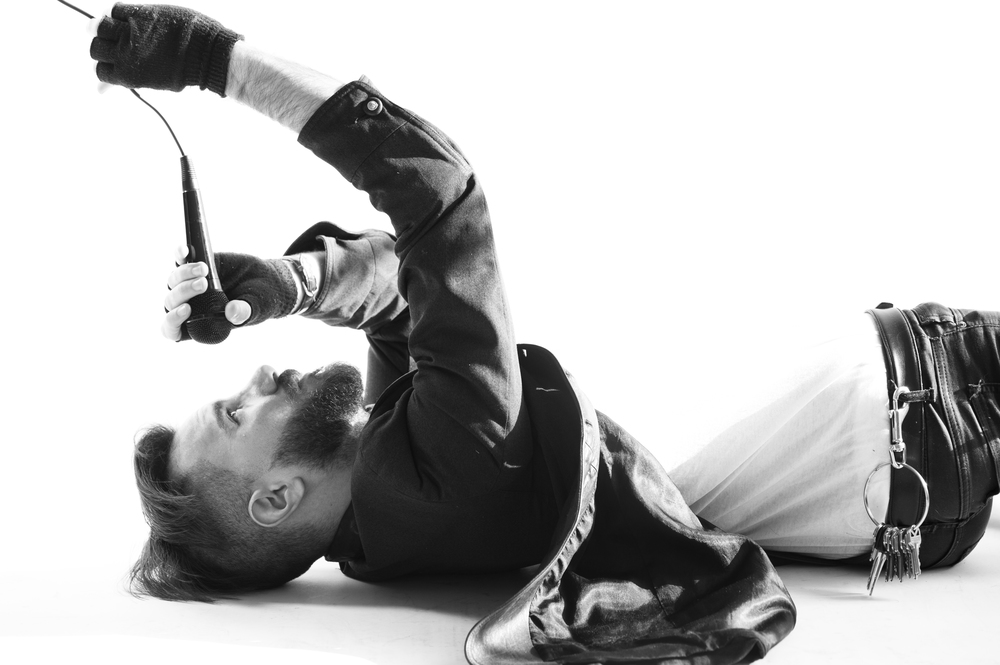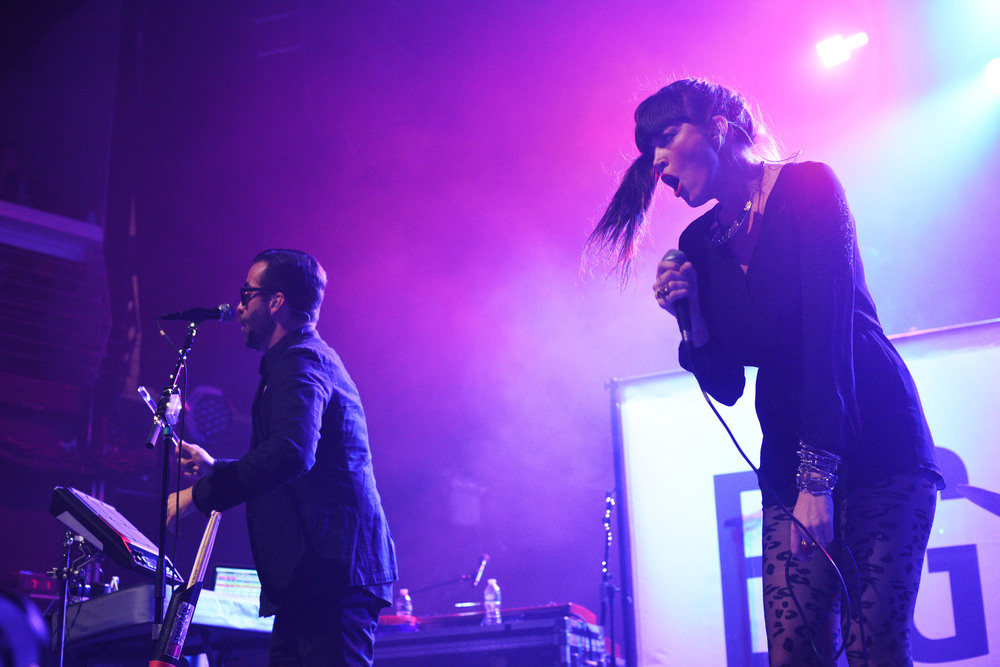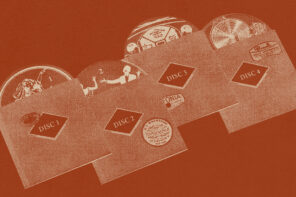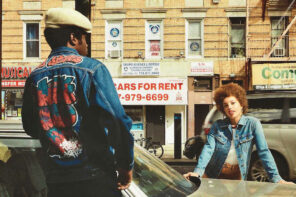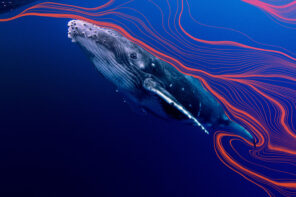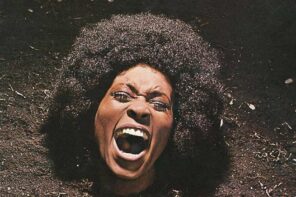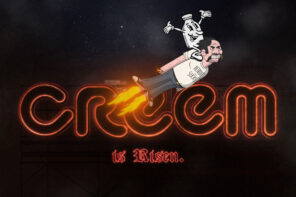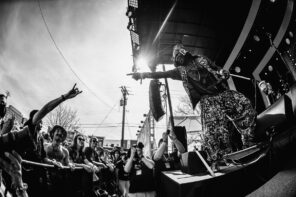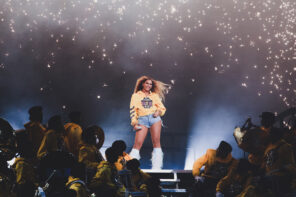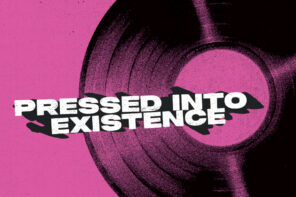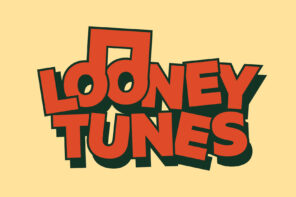What happens when you put a group of talented creatives — a photographer, a singer, a producer and a record label CEO — in a common space to do cool sh*t?
Put ‘em in a recording studio and you’ll probably get a badass album and an outlandish VH1 Behind the Music segment.
Take the same group of people and bring them to Coney Island for an evening with a couple cold ones, a camera, some interview questions and the talent that oozes from their voices, ears and minds, and you’ll get the below segment.
Our subjects:
James Ryan — a pioneer of sorts in his musical progression and a veteran in his knowledge as a producer/writer of music under the name Olde Sake and Gloomfeather.
Elizabeth “Liz” Ryan — James’ older sister, an undeniably talented and enthusiastic vocalist, better known as one of the live lead vocalists for the well-known electronic group Big Data.
Finally, Mike Abiuso — owner/founder of Switch Bitch Records. A man who is always ready to give a helping hand, advice or encouragement when it’s needed the most, especially when it come to music. Like that one time the three were on a tour bus on the way to Austin for SXSW, when it broke down and he supplied some comic relief and good vibes in an annoying situation — he’s good for that sort of stuff. He’s like the team leader here.
We caught up with these three — some of the East End’s biggest up and coming musical geniuses — and brought them to Coney Island for a badass photo shoot with their good friend and Whalebone photographer Chloe Gifkins, an insightful interview conducted by Leone Humm and an well-documented experience worth sharing with you all. The cool part about this particular shoot is that this certain tribe of individuals involved share a common foundation in hailing from our very own beloved East End and have known each other for quite some time — ensuring good times and great results.
After a couple brews, one too many cotton candies and a trip around the Swing Wheel, here’s what these East End bread musical geniuses had for Whalebone.
CONEY ISLAND || LIQUOR TO TANK & HOT DOGS TO EAT
Leone Humm: Give me a little intro on your music and style, and how the East End has influenced your interest in music.
Mike Abiuso: I’ve was brought up listening to like Billy Joel, Elton John type music, and when I moved out to East Hampton, I started a band, started recording and was heavily influenced by some of the older folk in the area and bands around there. I guess they inspired me a lot genre wise at that time — around the 2000ish era. It was probably progressive rock, bands like the Mars Volta type of music — that was catchy, but a little bit off and dark and weird. Those were the songs that stuck in my ears, like “oh that’s cool they are doing that.” Never super showy off stuff — just a little touch of something different, and it caught my ear and I’d think, “yeah I’d like to explore that more.” I always thought that’s what I wanted to do — catch peoples ears with things that I feel are catchy, but also different than everything else out there.
Liz Ryan: I thank Mike regularly for exposing me to the music he did, when he did because that has shaped what I’ve listened to and what I’ve become.
James Ryan: Being out east shaped a lot of the entire village and place musically really. Mike was the last generation without the Internet, and we were the first to see other acts come in via the Internet. There were some mom-and-pop shops though, CD stores like Long Island Sound, that for some reason had a good import. Whoever was looking at the artists and this and that, they were bringing in acts that were much more heavy, or much less the norm or pop heavy than most others might have been pulling in. So there was something going on there that allowed a small pool to see a greater picture of various acts that were going on at the time. I think that might have something to do with the amount of music to have come out of the area. I actually have always been impressed with the variety to be honest. People were a little bit more open minded to experimentation out east.
MA: The move out east influenced me for sure, it had to. Your surroundings definitely do. I was born in Queens and I always think about it, as there was a point in 1st grade when my Mom and Dad split up and they asked who do you want to go with from here. I said my Mom because she was moving out east. Nothing at all to do with them, but strictly because we used to go out east for vacation, and I was like ‘oh I want to go with her and go out there, head to Montauk, Hither Hills and do our camping thing.” That’s what I thought life would be, but I was then struck with the harsh reality of actual school and working and stuff like that. But I always wonder if I were in Queens, with so many people in that portion of Long Island that are so rap, hip hop, or like R&B, EDM oriented, like any of that stuff. I could see myself following my dads path and being super Italian, like … ‘we’re going to a club on Friday.’ That would have been so weird. I think about that frequently, so yeah obviously my surroundings have influenced my music and everything for sure.
LR: I’m also kind of disappointed now though – there is a guy Roger Robertson, who took drum lessons from Tim McCoy – Robert was the last one to know about new music and do new things. I haven’t heard about anything new out there now. The generation we came from, there were so many people who were branching off and doing different things. I don’t know what has changed. I guess it’s now that the Internet is in place. The year I graduated, was the first year they allowed Facebook in colleges, and now everyone’s using it – it has just ruined everything. Its all pop, you don’t find things on your own — that sense of natural discovery. Sucks on so many levels, although it has been great for so many. I’ve just haven’t heard of a young person coming out from out east recently.
JR: What’s happening is there is less kids traveling along the Island to see shows, just because they expressed to their parents it’s important (to see shows). I mean there is no reason for it to be regarded as important at all, but just now those are the same people doing more international things and not local. The Internet is in place, it’s a given that it is all there for you. The drive might not be there so much, the love isn’t there so much — you have to have someone above you pass it down to you.
LH: How have you kids from out east adapted to this shift of the influence of online music and Internet promotion?
MA: I have been in the flow of it, so I haven’t had to adapt too much, but I definitely see other labels that are so used to being a label and working one way having issues with that. Like “Oh we did this for 10 years and it worked and now it doesn’t,” and that’s a harsh reality for them.
LR: For one I’m not even on Facebook. Aside from being a part of Big Data, he’s the one that is majorly on all sorts of social networks. I tried it for my solo stuff and it hasn’t made a difference for me yet. I’m an Instagram person right now- I just like to take the photos. Not sure of the other social media stuff – it depends on where you’re at and what you’re doing with the music you are making and the friends you have, it’s a tough one for me. I mean I see people handing out flyers and I’m thinking ‘oh god why are you doing that?’ but now I’m like the event page on Facebook is the new flyer …. and even that makes me think ‘oh god.’
JR: I’m new to Instagram, and having a blast with it. After I got over the idea that I needed to be a photographer – I mean I’m an audio person. Once I ditched the idea that it was some sort of portfolio and just had fun with it, that’s when I realized it was a good time.
LH: How does a bunch of kids from out east get started in the music industry?
MA: Definitely not from a musical family. The first time I picked up a guitar I was in grade school and my friend Eric played, his older brother played drums, and I would spend the night at their house almost every weekend. He would teach me how to sight read a little bit, showed me a Beatles song, and his brother taught me Smells Like Teen Spirit and that was what probably set me off on this path. I wouldn’t be doing it if it wasn’t for him. I’d probably have some corporate standard job that I hate during the week, but be rich as f*ck.
LR: It’s not so much how we got into the industry, but more the interest we immediately had as children. I always knew I wanted to sing, ever since I was four or five and knew it was something I could do. I’m not from a musical family, I mean neither of our parents sing – although my dad is a world renowned whistler. If you’re in the car, he’s got the vibrato whistle and my mum has this alto tenor booming voice, but its not like anything that they’ve followed through with. James has always been playing guitar, but we grew up playing piano. My favorite song was Tea for Two and his was Flight of the Bumble Bee.
Growing up out east we had exposure for sure. Funny story — our mums went out for dinner with Billy Joel, and they went back to his house. Billy asks a seven or eight year old James, ‘What piano do you want me to play?’ as he pointed to a keyboard and a grand piano. James just pointed at the grand piano because that is just what we knew. Billy then asks ‘What song should I play?’ thinking it would be one of his songs, and James requests Flight of the Bumble Bee. So that sort of thing happened. Growing up and being surrounded by it at home, we immediately were seeing the keys move, and we’re trying to learn them ourselves. Music was always around the house so we could pick it up. Just being from out east and surrounded by people like Mike. and a few of the boys that were older than us; they brought the music scene and exposed us to all these bands.
I was a freshman in high school when I met Mike, he was a senior and we were all friends. James was in 8th grade and loved Mikes band Farewell and Splendor. He would always be like ‘You know Mike?’ James started off as a fanatic of Mikes! I mean Mike is an insane guitarist and James looked up to that. So its progressed since we were little. There isn’t necessarily a time we got into the industry – it’s the passion that’s kept us into it. There is no other job we want to do. Like Mike went to school for music education just knowing he wanted to stay in music. I knew since I was a freshman I wanted to too. If you weren’t going to Berklee (College of Music) or Fivetowns, you were going to Purchase, which is another art school in the vicinity of the east coast, and James ended up going there.
LH: Whatcha working on these days and are there any plans for the future?
MA: I just recently departed from the band I was in, well not the band, but they are going to rebrand and form a new one that I am not going to take a part in. The big reason being I’ve toured the US 30 or 40 plus times. I’ve done it for a while and feel like I’m too exhausted to start over at this time. So I’ve been more into like the record label stuff I’ve been doing; music magazine stuff, then some commercial, film and video game scoring – stuff like that where I can bring in an income that is not disgusting to look at on paper. Still artistic in a sense — I keep the roots and influences and incorporate them and alter them a little bit to what I’m working on at the time.
I do a lot of stuff strictly because when I was in the band and working with different record labels, I took the good and bad of what they did and found out that it came down to me doing a lot of it on my own. I started off doing publicity stuff, label work and recording and stuff like that for us. It saved us a bunch of money, and I got a good grasp on all of those things and that’s kind of why I started pursuing that.
You get a full spectrum view and you realize you need to do a lot of it yourself to make ends meet, and you develop the skills to do all of that stuff. I started some mini companies here and there, one being the record label, taking the good things I knew from record labels (I worked with), and trying to do that for other bands. And publicity-wise, I was trying to publicize my own band, and now I do other bands. It’s just all this stuff put together is where things are going these days, specifically because music is not like … as tangible as it used to be. It’s not tapes and records – even though they are trying to bring it back — it’s still like 95 percent digital, so you still have to have an online presence and adapt.
JR: There are more than a couple albums to put out definitely. Then some stuff working together (with Liz). That is long past due.
LR: They know of us as separate entities, which is awesome as they see us doing our own things. Exposure is amazing with Big Data, as I want to sing other peoples songs. I mean I do write my own things, but this is awesome and exactly what I’ve been wishing for. I’ve got to put out my EP, getting mastered now with me and my homies, Jamie Burke and Mikey James — that’s happening.
JR: We have a little bit of music ourselves, I’ve had tunes I’ve pushed her way that I’d like her to be featured on. There’s no way that we aren’t going to work together. I mean it’s not necessarily that we wouldn’t be doing this without each other, but we will keep collaborating. We like to be successful with other people because we’ve quietly worked alone for so long. That whole idea, “why the f*ck not join up?’ is evident, as there is really no reason not to.
LR: We always work in a realm where we are recommending each other. I will see things and think ‘this will be good for you James.’ It’s a network, a mutual love that we have grown up with. Neither of us have to say ‘oh I love this, I’m gonna do this,’ we recognize in each other what we are doing and what’s good for each other — we don’t even need to question it.
JR: I see where my strengths are and I don’t think in this past year I’ve been showing them that much, as I haven’t been performing. That’s not the only part of it — that’s what I’m saying. Just getting the balance right, trying to be on the same page as everybody, but trying to pursue what you think is true to you in the first place too. I have more music that I would like to release as opposed to old music I play. This fall you’ll be seeing some new stuff.
Alright, can we go on the rides now? We have liquor to tank and hot dogs to eat.

